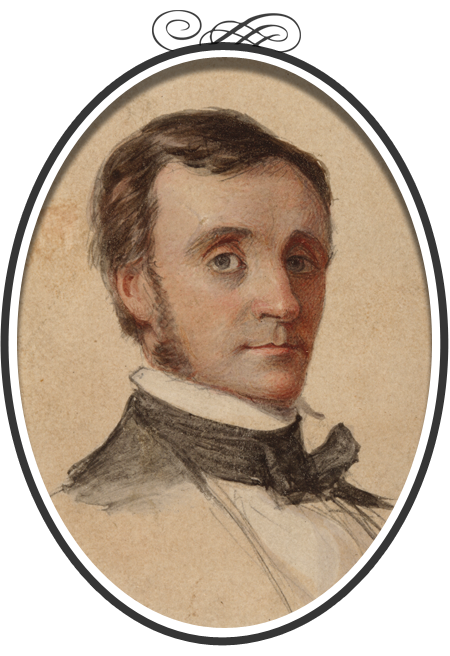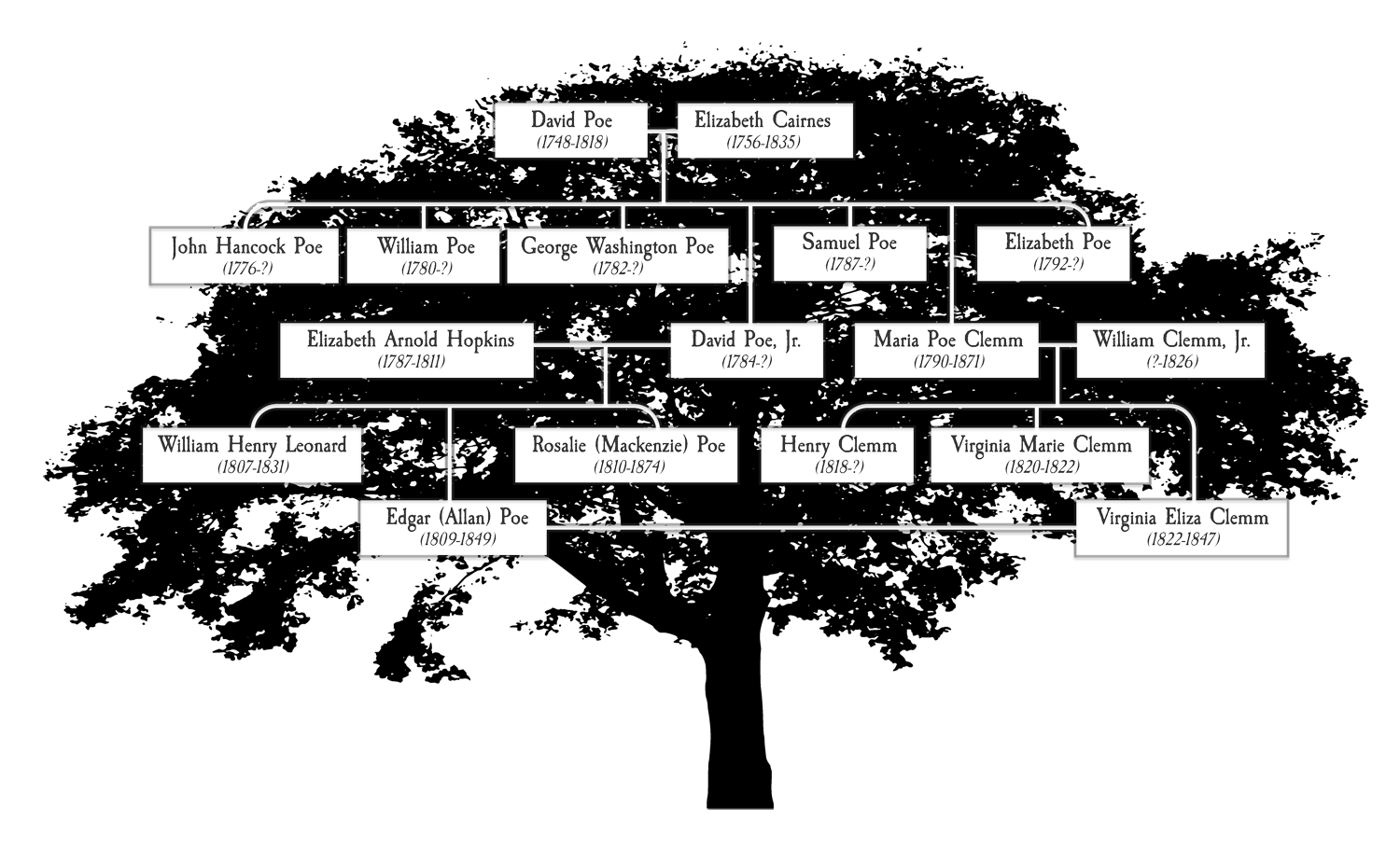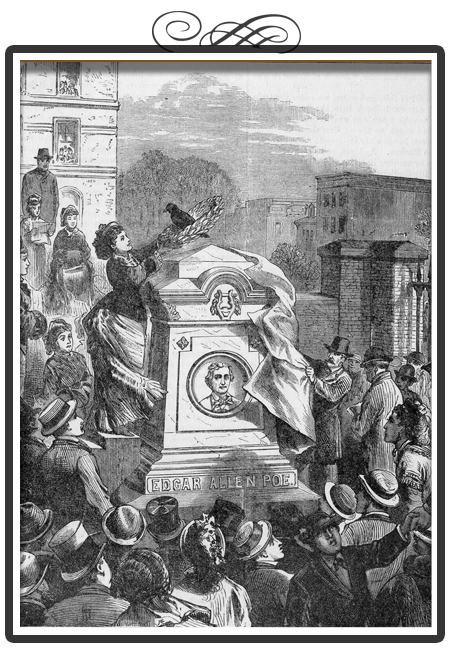Although Richmond is the place Poe most considered home, Baltimore defines the beginning and the end of his life. Born while his parents, both actors, were traveling in Boston, his family roots were firmly set in the soil of Baltimore and here his mortal remains rest for eternity. His great-grandfather, John Poe, established the Poe clan in Baltimore in 1755, only a year before his death. Poe’s grandparents, David and Elizabeth Cairnes Poe, raised seven children and achieved here a place of prominence if not wealth through patriotism, hard work and community service.
When asked about his origins, Poe was fond of saying that he was a Virginian gentleman, but it was in Baltimore that Poe sought refuge when he had feuded with his foster father, John Allan, and was compelled to leave the house. It was in Baltimore that Poe found his future wife, Virginia Eliza Clemm, and in Baltimore that he placed his feet on the first steps of what would be his career for the next 17 years. Perhaps most revealing, when asked for the place of his birth, Poe turned his back on Boston and claimed Baltimore instead.



